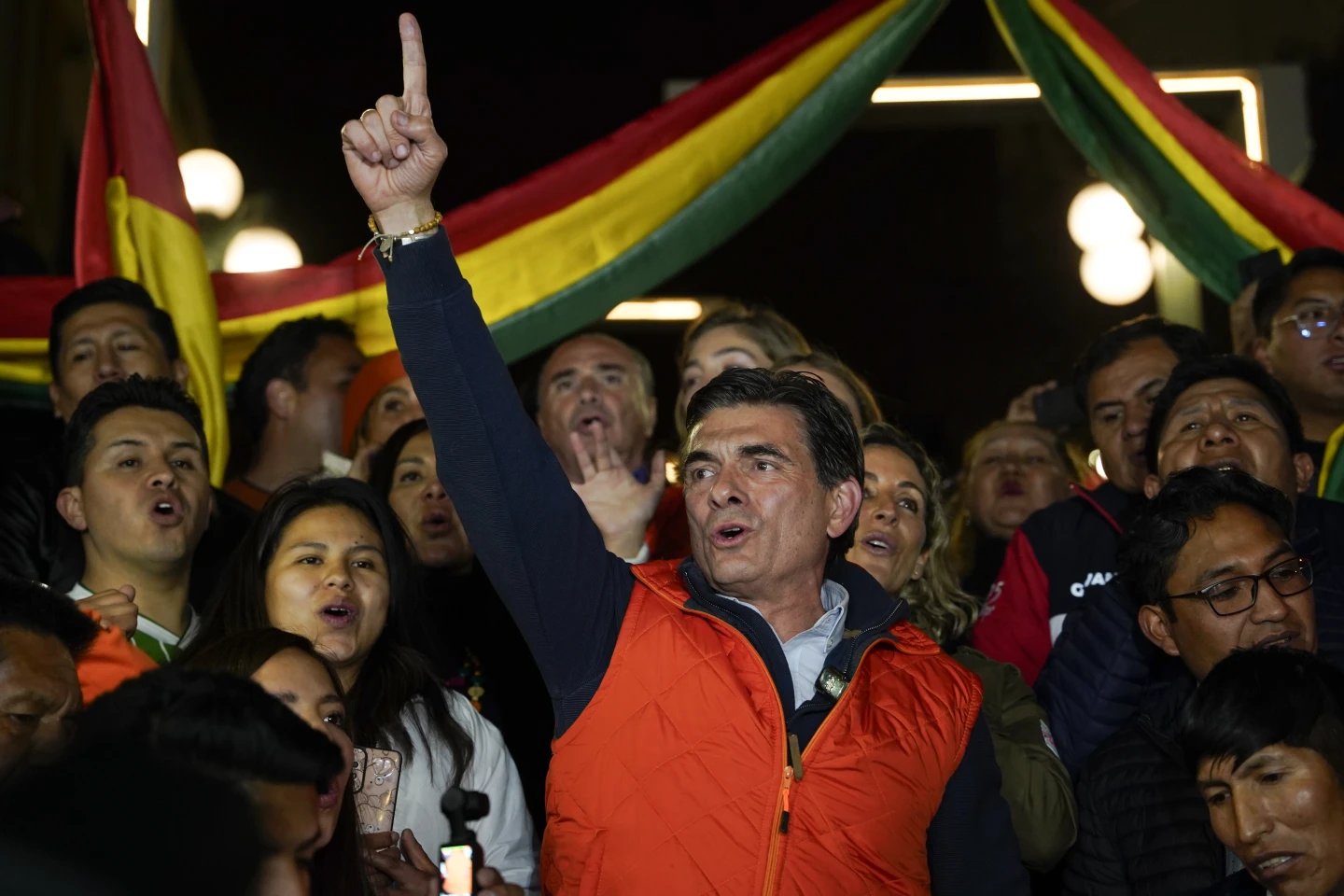Bolivia’s presidential vote headed to an unprecedented runoff after elections Sunday that ended more than two decades of left-wing dominance in the Andean nation but signaled voters’ trepidation about a major lurch to the right.
Senator Rodrigo Paz Pereira, drew more votes than the right-wing front-runners, although not enough to secure an outright victory, early results showed, while, former president Jorge Quiroga came in second place in Sunday’s presidential elections.
Neither received a high enough share of the vote to secure an outright win, so the vote will go to a run-off between these two candidates, due in October, reports AP.
Paz Pereira, of the Christian Democratic Party, was a surprise vote leader, after opinion polls had suggested Samuel Doria Medina, a businessman, was the frontrunner. The electoral authorities said it can take up to three days to finalise the results, reports the BBC.
Paz Pereira’s campaign focused on redistributing more funds away from central government towards regional entities, and fighting corruption – with his slogan “capitalism for all, not just a few”.
He has suggested a programme of accessible credit, tax breaks to boost the formal economy, and eliminating import barriers for products that Bolivia does not manufacture.
Quiroga briefly acted as interim president from 2001-2002 after serving as Vice President to Hugo Banzer, a military dictator until he was later elected. The election of a president from outside the left camp will likely see sharp changes in the Latin American country’s foreign policy.
In terms of trade, both candidates capitalist stances could indicate more support for foreign investment in Bolivia’s vast lithium reserves – the key ingredient for batteries used in many electric cars, laptops and solar panels.
Politically, a change in government could mark closer ties with the US, after two decades of strengthening ties between Bolivia and China, Russia and Iran.
A recent US Congress report briefing described US-Bolivia relations as “strained” under the socialist party’s governance.
The country’s turn to the right comes as it is experiencing its worst economic crisis in years, with shortages of fuel, foreign reserves and some food items and high inflation and debt.
Opinion polls ahead of the election suggested that many voters wanted to vote for change, or to punish the incumbent Movimiento al Socialismo (MAS) party.
The current president, Luis Arce, mired in deep unpopularity, decided not to seek re-election.
The punishment of the left is not just electoral, but physical in some cases. The candidate for MAS, Eduardo del Castillo, was booed out of the school where he cast his vote. Bolivian media reported that some fellow voters told him to “wait in line like they do for fuel” rather than skip the voting queue. People also threw stones at the highest-polling left-wing candidate, Andrónico Rodríguez, when he went to cast his ballot. Rodríguez was previously a member of MAS before splintering from the party.
The left has not just faced recent unpopularity over the economy. It is also deeply divided.
Ex-president Evo Morales still has many supporters – even though he is barred from running again. This marks the first time in about two decades, the former president, Morales, was not on the ballot.
Morales ruled the country from 2006-2019 and was barred from running again, despite attempts to challenge legal and constitutional rulings to let him run for a fourth term. He has urged his supporters to null their vote.
Rodríguez was once seen as a protégé of Morales, but has since distanced himself from him.
Deep rifts and power struggles have existed in the ruling MAS party ever since. Morales’s supporters have held protests and roadblocks against the re-election ban imposed on him, which have at times turned deadly with some emergency responders being killed.
Judges ordered an arrest warrant for Morales over an alleged sexual relationship and rape of a 15-year-old girl. He has called the accusations politically-motivated. He has been living and operating from Chapare in Bolivia, protected at times by his supporters.


